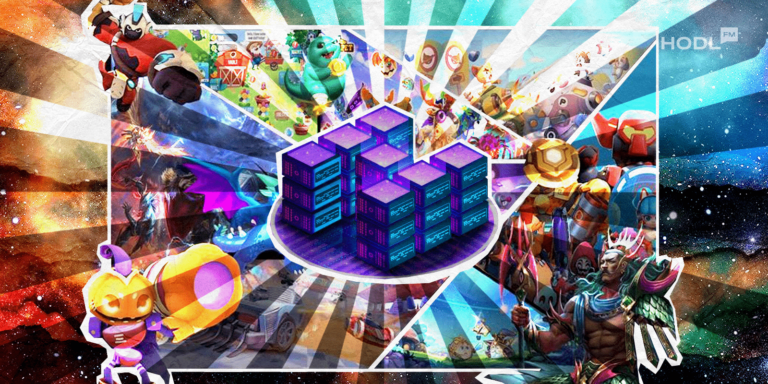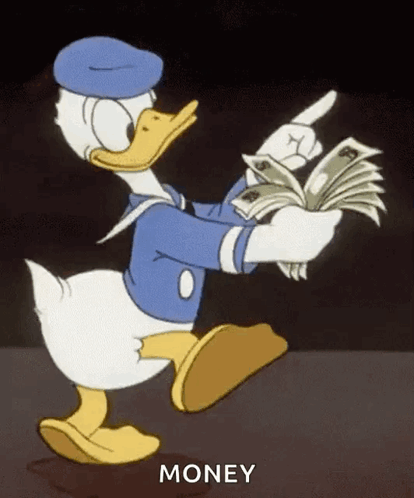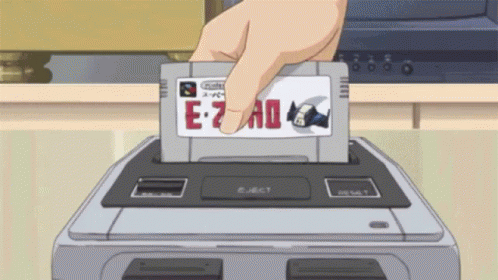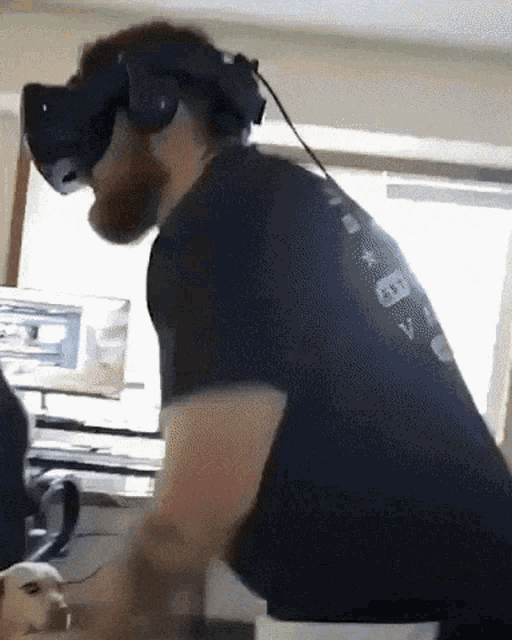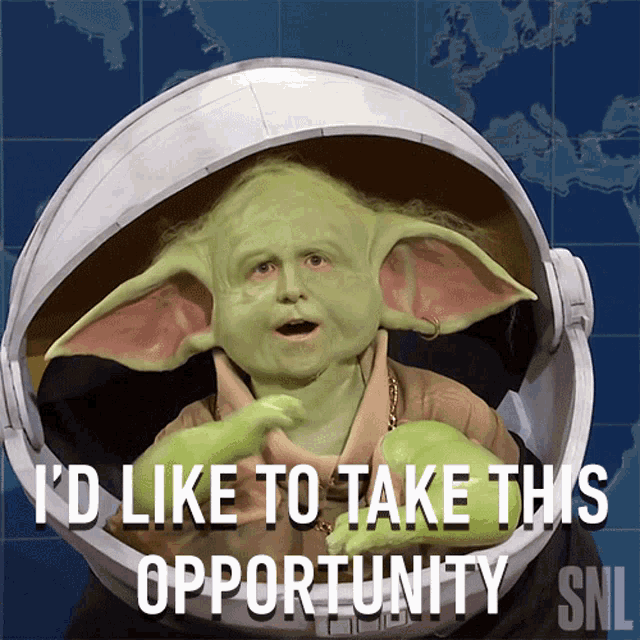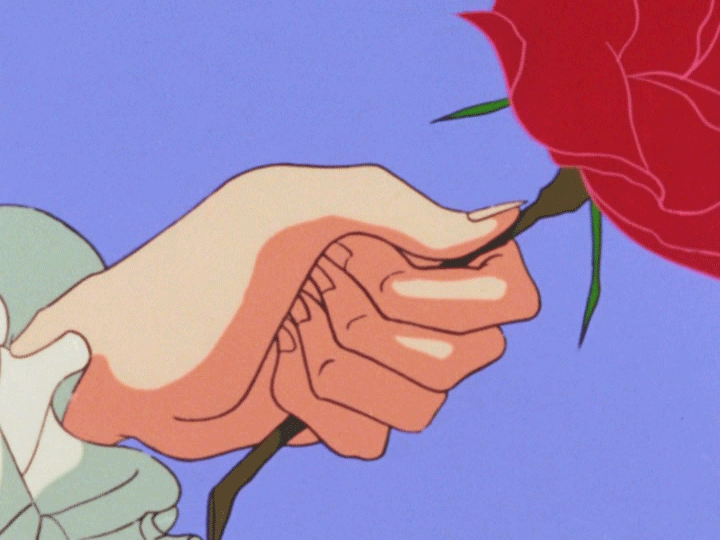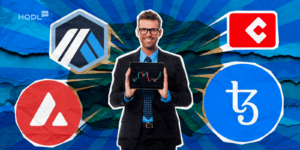Hey you, gamer! Are your girlfriend or mom unhappy with you 24/7 playing video games or spending family budget/pocket money on new skins? Let her stick to her knitting, as you may even make money out of it! OK, you’ll tell that if you’re a rude person. Instead, you’d better tell her about Web3, blockchain games, and GameFi concepts to explain and take a chill pill! Use this article for your argumentation in the future.
Related: The Future of Gaming in 2024: The Potential of Blockchain Technology
Where Are We Now?
Heading into 2024, the blockchain gaming industry has seen a surge in investment. Let the numbers speak: in the period from May to November 2023 alone, more than $1.4 billion was raised. Well, money is floating into the metaverse, right?
Moreover, traditional gaming giants like Ubisoft and Electronic Arts are actively exploring the integration of NFTs and blockchain technology into their games. OMG! One day, it could be possible to withdraw your entire budget from SIMS! In “Motherlode,” we trust! For real, signaling a mass adoption trend. These Binance ads all over the Internet haven’t gone to waste, have they?
Game devs are stepping up their game to make blockchain games more fun and inviting for everyone, not just crypto nerds. Josh Jones, co-founder of the open-world blockchain game Cornucopias, believes that the industry is getting to gotta make all that blockchain jargon simpler so more regular gamers can jump in without scratching their heads. Mixing classic gaming with blockchain tech could shake things up and push the gaming world forward in 2024.
Wait! I’m a Newbie. What’s All That About?!
Sorry, buddy! Let’s start from the very beginning.
Basically, this is all about monetization of the game process and ownership of in-game assets. Add the new word to your “mempool” — GameFi. Yeah, we’re still in the realm of video games! The history of video games traces back to the 1940s, with the development of early electronic games like “Cathode-Ray Tube Amusement Device
The late 1970s saw the emergence of home video game consoles, such as the Atari 2600 and NES, shaping the future of gaming with iconic franchises.
The 1990s marked significant technological advancements in video games, transitioning from 2D to 3D graphics and introducing larger storage capacities. Online gaming emerged in the late 1990s, with games like “Quake” and “Ultima Online” paving the way for MMORPGs like “World of Warcraft.”
Modern gaming has seen transformations with enhanced graphics, online connectivity, and innovations like virtual reality (VR) and augmented reality (AR). And talking about blockchain games, they are changing one more thing – retention of ownership of digital items in the form of NFTs.
The classic “pay-to-play” model (non-blockchain games) requires the user to pay for a subscription or licensed access and attributes that sweeten your gameplay. This category of video games runs on centralized game company servers. Therefore, you don’t really own all these looted garments, swords, etc.
GameFi is changing the traditional gaming industry. From the “pay-to-play” we go into the “play-to-earn” model. It combines gameplay and monetization, while blockchain makes the model decentralized and transparent.
In GameFi, it’s not just playing around—you actually own cool stuff like weapons, outfits, and characters that are worth real money outside the game. You can sell or trade them on NFT sites. Plus, you get rewards in tokens that you can swap for crypto, bringing the whole play-to-earn thing to life.
First Experiments in GameFi
So, GameFi got kicked off by Andre Cronje from yEarn Finance back in 2020, but games were already messing with crypto way before that. Like, back in 2014, some online casinos were cool with taking Bitcoin.
Later, these Minecraft nerds tried mixing Bitcoin into the game. On this MinecraftCC server, you could earn Bitcoin for pretty much-doing anything—stacking blocks, slaying monsters; you name it. But by 2016, things got unstable, and they ditched the Bitcoin part, though the server was still up and running.
From 2020, GameFi really started to boom (you remember the investments in 2023, right?!). Tons of games popped up where you could own, buy, and sell game stuff as NFTs, all thanks to the DeFi and NFT craze getting bigger.
Related: The Blockchain Gaming Industry in 2024: 5 Hypothetical Gems We Might Unbox!
2024 Most Popular Blockchain Games
According to the biggest global NFT & DeFi dapp store, DappRadar, the rating of the blockchain games is the following:
HOT Game
HOT Game‘s a fully functional blockchain game that allows you to store, send tokens, earn them for tasks, or export your account to any other wallet.
motoDEX
motoDEX is an NFT game is a competition of multi-level racing on motorcycles on high-speed tracks with unlimited opportunities for players.
StarryNift
StarryNift is a co-creation metaverse, bringing players immersive 3D virtual experiences where they can Play, Create and Socialize.
Pixels
Pixels is an interoperable Web3 farming game. Make your home in a world of unlimited adventure.
Sweat Economy
SWEAT aims to bring real value to movement, incentivizing people to move. You earn tokens for movements there.
Carrom Blitz
Carrom Blitz is a suite of casual mobile games for relaxation and skill-testing, along with winning $RLY for completing tasks.
OasChoice
OasChoice is an opportunity for participants to engage with the OAS ecosystem by predicting its price movements.
Yuliverse
Yuliverse is the World’s very First Parallel Reality Gaming Metaverse on BSC chain, Inspired by Pokemon Go & Tinder.
PlayEmber
PlayEmber is the infrastructure and games to mass onboard Web2 games into Web3.
OK, What’s In It For Me?
All this chit-chat about blockchain gaming got you confused. What’s there for you in this GameFi stuff? Let us describe the advantages of this new type of video game. So, it is possible to highlight the following benefits:
- Digital Identity & Reputation: Blockchain creates secure digital identities, enhancing player verification and fraud prevention.
- Transparent & Secure Transactions: Offers transparent, efficient, and immutable blockchain transactions, safeguarding against fraud.
- Player Control: Empowers users with complete control over their gaming experience, enabling asset monetization and creative input on game development.
- Players’ Security: Provides a secure gaming environment, reducing vulnerability to cyberattacks through decentralization.
- Secure Environment for Developers: Ensures a safe development space with data encryption and a decentralized network, eliminating single points of failure.
- Interoperability & Decentralized Economies: Facilitates asset interoperability across games and blockchain platforms, supporting vibrant decentralized economies.
Though, Every Rose Has Its Thorn
Of course, there are drawbacks! Oops, it seems too harsh. Let it be some challenges:
- Technical Complexity: Implementing blockchain in games requires deep technical knowledge, increasing development time and costs. This can deter smaller developers and overwhelm players with tasks like setting up crypto wallets.
- Limited Game Selection: The nascent blockchain gaming sector needs more diverse games, which might not attract experienced players seeking competitive environments.
- Scalability Issues: High transaction volumes can overwhelm blockchain networks, leading to slow transaction times, elevated fees, and a poor user experience.
- Regulatory Uncertainty: The regulatory issues for blockchain and compliance risks for developers, with various regulations in regions.
- Crypto Security Concerns: Despite blockchain’s decentralized security, centralized platforms remain prone to hacking and security breaches.
Final Thoughts
Well, now you know the theory of blockchain games, its pros & cons, and even the most popular ones to try it yourself. But will it really work in the future? Trends could be discussed for a long time, but the main points will likely become true until this year’s end.
- Mainstream adoption by traditional developers.
- Simpler asses to get into blockchain gaming.
- Players owning their virtual assets through NFTs will continue to redefine gaming economics and security.
- The ability to profit from in-game assets outside the gaming environment.
- There are two words (actually three) — VR integration.
- Assets interoperability across multiple platforms.
So, blockchain gaming’s future is brighter than a supernova in a dark sky, friends! GameFi could turn your virtual coins into real coffee money. This blend of gaming and blockchain might revolutionize our digital playgrounds — or at least make them more profitable. Will it flip the gaming world upside down? Shortly, we know!
Read More:
- Axie Infinity’s Play-to-Earn Model Draws Concern from Philippine National Police
- NFTs that Breathe Fire: Dragons of the West
- The Game Changer: How Web3 Games are Revolutionizing Ownership and Education
Q&A
What Are Blockchain Games?
Video games that use blockchain technology to enable secure, transparent ownership of in-game assets like items or characters through digital tokens or NFTs.
What Is Interoperability in Gaming?
The ability of different gaming platforms and systems to work together allows for shared data, assets, and gameplay experiences across various games and environments.
How Is Blockchain Used in the Gaming Industry?
Blockchain technology creates immutable ownership records for digital assets, facilitates secure and transparent transactions, and enables new economic models like play-to-earn.
What Is the Potential of Blockchain Gaming?
The potential of blockchain gaming lies in transforming the gaming industry by enabling actual ownership of in-game assets through NFTs, facilitating cross-platform interoperability, allowing players to earn real-world profits from virtual gameplay, and integrating with VR to enhance immersive experiences.
Disclaimer: All materials on this site are for informational purposes only. None of the material should be interpreted as investment advice. Please note that despite the nature of much of the material created and hosted on this website, HODL.FM is not a financial reference resource and the opinions of authors and other contributors are their own and should not be taken as financial advice. If you require advice of this sort, HODL.FM strongly recommends contacting a qualified industry professional.
